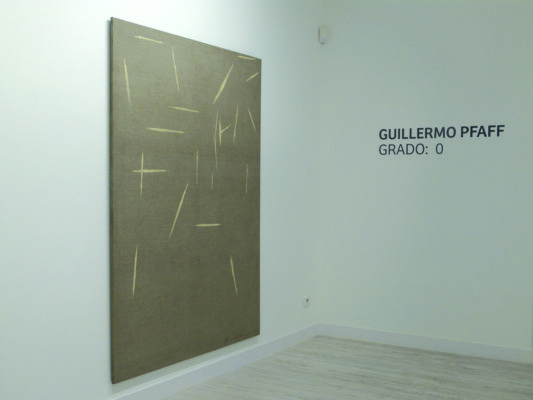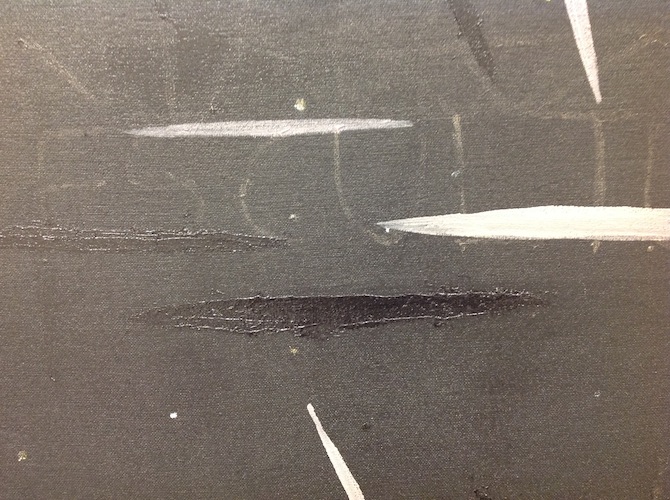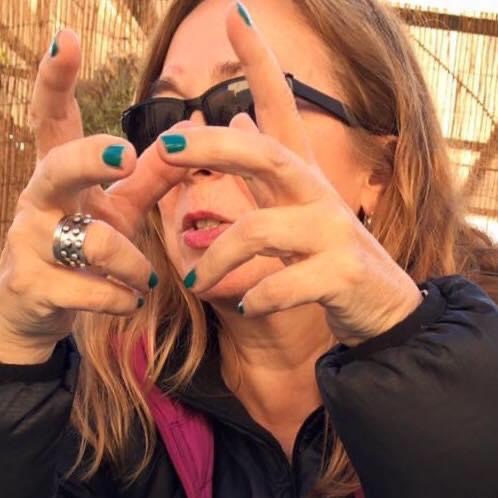Search
To search for an exact match, type the word or phrase you want in quotation marks.
A*DESK has been offering since 2002 contents about criticism and contemporary art. A*DESK has become consolidated thanks to all those who have believed in the project, all those who have followed us, debating, participating and collaborating. Many people have collaborated with A*DESK, and continue to do so. Their efforts, knowledge and belief in the project are what make it grow internationally. At A*DESK we have also generated work for over one hundred professionals in culture, from small collaborations with reviews and classes, to more prolonged and intense collaborations.
At A*DESK we believe in the need for free and universal access to culture and knowledge. We want to carry on being independent, remaining open to more ideas and opinions. If you believe in A*DESK, we need your backing to be able to continue. You can now participate in the project by supporting it. You can choose how much you want to contribute to the project.
You can decide how much you want to bring to the project.

I don’t write a lot about painting. The excesses of those years as a student of history of art have left some trauma and a slight contraction. They instilled in me that painting is the synonym of art and the brush a metonym of the artist. And, that the artist paints the model. An overdose of hegemonic might. But with time I’ve learnt to look out the corner of my eye, beyond painting, to find something more than just painting and also to be able to enjoy the pictorial. And that’s not a tongue twister.
Looking out of the corner of one’s eye, to where nobody points, without being noticed, permits those moments when a pictorial comportment seduces me. Something happens, that I’m going to try and describe in reference to the work by Guillermo Pfaff and his exhibition ’Grado 0’ at La Tache’ Gallery in Barcelona. In principle, nothing special. A diaphanous space, architecture at the disposition of canvases and painted papers, empty spaces and slightly dimmed light that still doesn’t erode the metaphysics of the white cube. Suddenly I stop looking out of the corner of my eye and observe close up the surface and depth of field that Pfaff’s painting offers. And, click, suddenly that something that leads me to put pen to paper. The directness of painting is impossible to translate into another perceptive dimension the canvases are the result of an ambiguous pictorial process full of empty signs. I notice that I read paragraphs of an essay about the pictorial.
The work by Pfaff doesn’t attack the soul, so much as hits the mental plane. The tool is not the image, so much as the process. The strategy is not the technique, so much as the intellect. The tactic is not emotional so much as pure painting, without contemplation. This artist thinks more than he paints, he writes before doing it and never accumulates work. Without a previous style, his process comes and goes between the tradition of painting and the limits of language. The degree zero of the writings of Roland Barthes, the critical essay that lends the exhibition its title, pointed to an urgency to legitimate the field of escape of connotation, the most ambiguous genealogy of language. The painting by this author highlights precisely its connotative carpentry and is surprising in its rigorous ambiguity. A possible grade zero for painting: the act of painting, says the artist, begins before the first brushstroke.
The material, the colour or the space for Pfaff are not language, something shared, so much as the writing where the performative function of reading is verified, its more social nature. Something that is observed in the series Space, when the artist before painting folds the canvases to provoke folds and wrinkles a more sculptural than expressionist three dimensionality, adding planes to enquire into the conflict of representation of the painting itself. In another case, the painted papers The portable Paintings take painting to a new level of resistance: a series of oils on paper of 100 x 70 cm, folded to A4 and put in an envelope, they become a portable object that is easily stored. The eclectic desires of his pieces make it possible to enjoy the edges of painting; his reflection on painting freely embracing the vindication and the crisis of the concept. Two small sculptures, by the artist himself, serve to tackle the three dimensionality of painting, the essence of the representation of chromatic writing. Critical painting without any grinding of teeth.
In the header of Guillermo Pfaff’s facebook there are two references to the world of art: Leon Golub and Bruce Nauman. Both, tied to Roland Barthes, share an interest and delirium for language, a heterogeneous production and a potential for methodical and at the same time light reading amidst the challenges of semantic ambivalence. Pfaff forms part of this improbable group of artistic research; the four of them handle the work as a form of writing, a way of thinking and understanding. An author’s pure reflection into the social use of painting, now yes, a synonym of art.


Pilar Bonet Julve is a researcher and teacher. She has a degree in Medieval History and a PhD in Art History from the UB, where she teaches contemporary art and design, art criticism and curating. She is interested in the overflowing and political spaces of art, she is not motivated by heraldic criticism or the vase exhibition. A specialist in the life and work of the Catalan medium and artist Josefa Tolrà, she follows in the footsteps of visionary women as an experience of new humanity. She has recently presented exhibitions on irregular creativity: Josefa Tolrà and Julia Aguilar, Les Bernardes de Salt; ALMA. Médiums i Visionàries, Es Baluard Museum, Palma; La médium i el poeta. An astral conversation between Josefa Tolrà and Joan Brossa, Fundació Brossa. Writing and editing pacifies his soul. She manages the research group Visionary Women Art [V¬W].
www.josefatolra.org
@visionarywomenart
@josefatolra
@pilarbonetjulve
@artscoming
"A desk is a dangerous place from which to watch the world" (John Le Carré)